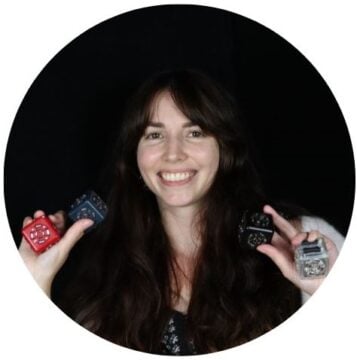Venue : Centre Broca Nouvelle-Aquitaine

On Zoom : https://u-bordeaux-fr.zoom.us/j/88655093725?pwd=WFdqNGY5WkJCZ0IwZ0F1TjlKUDFEZz09
Thesis defended in english
Thesis directed by Margarida Romero and Thierry Viéville
Title
Modeling cognitive processes within a creative problem-solving task: from symbolic to neuro-symbolic approaches in computational learning sciences
Abstract
Integrating transversal skills such as creativity, problem solving and computational thinking, into the primary and secondary curricula is a key challenge in today’s educational field. We postulate that teaching and assessing transversal competencies could benefit from a better understanding of the learners’ behaviors in specific activities that require these competencies. To this end, computational learning sciences are an emerging field that requires the close collaboration of computational neuroscience and educational sciences to enable the assessment of learning processes. We focus on a creative problem-solving task in which the subject is engaged into building a “vehicle” by combining modular robotic cubes. As part of an exploratory research action, we propose several approaches based on symbolic to neuro-symbolic formalisms, in order to specify such a task and model the behavior and underlying cognitive processes of a subject engaged in this task. Despite being at a very preliminary stage, such a formalization seems promising to better understand complex mechanisms involved in creative problem solving at several levels: (i) the specification of the problem and the observables of interest to collect during the task; (ii) the cognitive representation of the problem space, depending on prior knowledge and affordance discovery, allowing to generate creative solution trajectories; (iii) an implementation of reasoning mechanisms within a neuronal substrate.
Key words
Computational Learning Sciences, Creative Problem Solving, Knowledge Representation and Reasoning, Reinforcement Learning, Vector Symbolic Architectures.
Jury
Rapporteur.e.s:
Mme. Armelle Brun, Professeure des Universités, LORIA, Université de Lorraine.
M. Patrick Gebhard, Directeur de Recherche, Affective Computing Group, DFKI Saarbrücken.
Examinat.eur.rice.s:
M. Terrence C. Stewart, Associate Research Officer, National Research Council of Canada, University of Waterloo.
M. André Tricot, Professeur des Universités, Université Paul-Valéry, Montpellier III.
Mme. Emmanuelle Volle, Directrice de Recherche, FrontLab, Institut du Cerveau, AP-HP, Université PSL.
Direct.eur.rice.s:
Mme. Margarida Romero, Professeure des Universités, LINE, Université Côte d’Azur.
M. Thierry Viéville, Directeur de Recherche, Mnémosyne, Centre Inria de l’Université de Bordeaux, LaBRI & IMN.
Invité (co-encadrant):
M. Frédéric Alexandren Directeur de Recherche, Mnémosyne, Centre Inria de l’Université de Bordeaux, LaBRI & IMN.
Publications
Chloé Mercier. An Ontology to Formalize a Creative Problem Solving Activity. In IEEE Transactions on Cognitive and Developmental Systems, vol. 15, no. 4, pp. 1891-1904, Dec. 2023, ⟨10.1109/tcds.2022.3210234⟩. ⟨hal-03791482⟩
Chloé Mercier, Frédéric Alexandre, Thierry Viéville. Reinforcement Symbolic Learning. ICANN 2021 – 30th International Conference on Artificial Neural Networks, Sep 2021, Bratislava / Virtual, Slovakia. ⟨hal-03327706⟩
Chloé Mercier, Hugo Chateau-Laurent, Frédéric Alexandre, Thierry Viéville. Ontology as neuronal-space manifold: Towards symbolic and numerical artificial embedding. KRHCAI 2021 Workshop on Knowledge Representation for Hybrid & Compositional AI @ KR2021, Nov 2021, Hanoi, Vietnam. ⟨hal-03360307v3⟩

